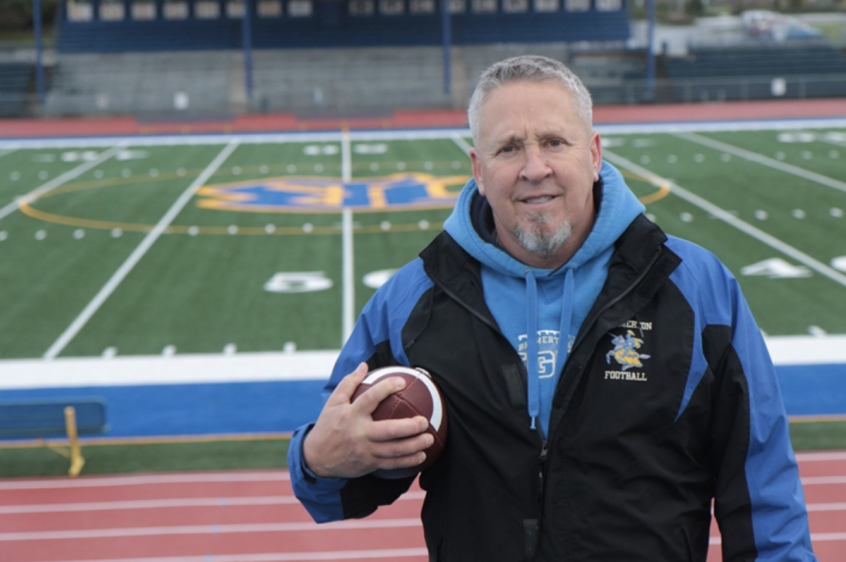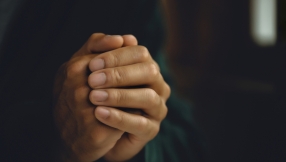
The United States Supreme Court has ruled that a Washington school district was wrong to punish a high school football coach for praying on the field after games.
In a decision released Monday morning, the Supreme Court ruled 6-3 that the Bremerton School District discriminated against Coach Joe Kennedy.
Justice Neil Gorsuch delivered the court's opinion, being joined by Chief Justice John Roberts and Justices Clarence Thomas, Samuel Alito, Amy Coney Barrett and Brett Kavanaugh.
"Kennedy prayed during a period when school employees were free to speak with a friend, call for a reservation at a restaurant, check email, or attend to other personal matters. He offered his prayers quietly while his students were otherwise occupied. Still, the Bremerton School District disciplined him anyway," wrote Gorsuch.
"Both the Free Exercise and Free Speech Clauses of the First Amendment protect expressions like Mr. Kennedy's ... The Constitution and the best of our traditions counsel mutual respect and tolerance, not censorship and suppression, for religious and nonreligious views alike."
In response to today's opinion, Kennedy said, "This is just so awesome. All I've ever wanted was to be back on the field with my guys. I am incredibly grateful to the Supreme Court, my fantastic legal team, and everyone who has supported us. I thank God for answering our prayers and sustaining my family through this long battle."
Kelly Shackelford, president, CEO and chief counsel for First Liberty, a religious liberty law firm based in Plano, Texas, which represented Kennedy, hailed the court's decision as a "tremendous victory for Coach Kennedy and religious liberty for all Americans."
"Our Constitution protects the right of every American to engage in private religious expression, including praying in public, without fear of getting fired," she added. "We are grateful that the Supreme Court recognized what the Constitution and law have always said — Americans are free to live out their faith in public."
Justice Sonia Sotomayor wrote a dissent, joined by Justices Stephen Breyer and Elena Kagan, in which she argued that "this Court consistently has recognized that school officials leading prayer is constitutionally impermissible."
"Official-led prayer strikes at the core of our constitutional protections for the religious liberty of students and their parents, as embodied in both the Establishment Clause and the Free Exercise Clause of the First Amendment," she wrote.
"This decision does a disservice to schools and the young citizens they serve, as well as to our Nation's longstanding commitment to the separation of church and state."
Paul Cement, former U.S. Solicitor General and First Liberty network attorney who argued Kennedy's case before the Justices, said, "After seven long years, Coach Kennedy can finally return to the place he belongs — coaching football and quietly praying by himself after the game. This is a great victory for Coach Kennedy and the First Amendment."
A devout Christian, Kennedy had a practice of going to the 50-yard line after high school football games and praying, often with fans and students joining him.
In 2015, the school district suspended Kennedy for praying on the field after games and later decided not to renew his contract because of his refusal to stop praying on the field.
Kennedy sued the school district in 2016, accusing them of violating his religious freedom.
Earlier this year, Shackelford said First Liberty was representing Kennedy because "No teacher or coach should lose their job for simply expressing their faith while in public."
A three-judge panel of the U.S. Court of Appeals for the Ninth Circuit ruled against the coach in 2017, while the Supreme Court initially refused to hear his case in 2019.
In March of last year, a three-judge panel of the Ninth Circuit again ruled against Kennedy, with Judge Milan D. Smith Jr. authoring the unanimous opinion.
"[T]here is no doubt that an objective observer, familiar with the history of Kennedy's practice, would view his demonstrations as BSD's endorsement of a particular faith. For that reason, BSD had adequate justification for its treatment of Kennedy," wrote Smith.
"BSD had a compelling state interest to avoid violating the Establishment Clause, and it tried repeatedly to work with Kennedy to develop an accommodation for him that would avoid violating the Establishment Clause while nevertheless offering him options that were narrowly tailored to protect his rights ..."
In January, the Supreme Court agreed to hear an appeal in the case and heard oral arguments in late April, with the justices debating whether Kennedy's prayer practice was coercive.













